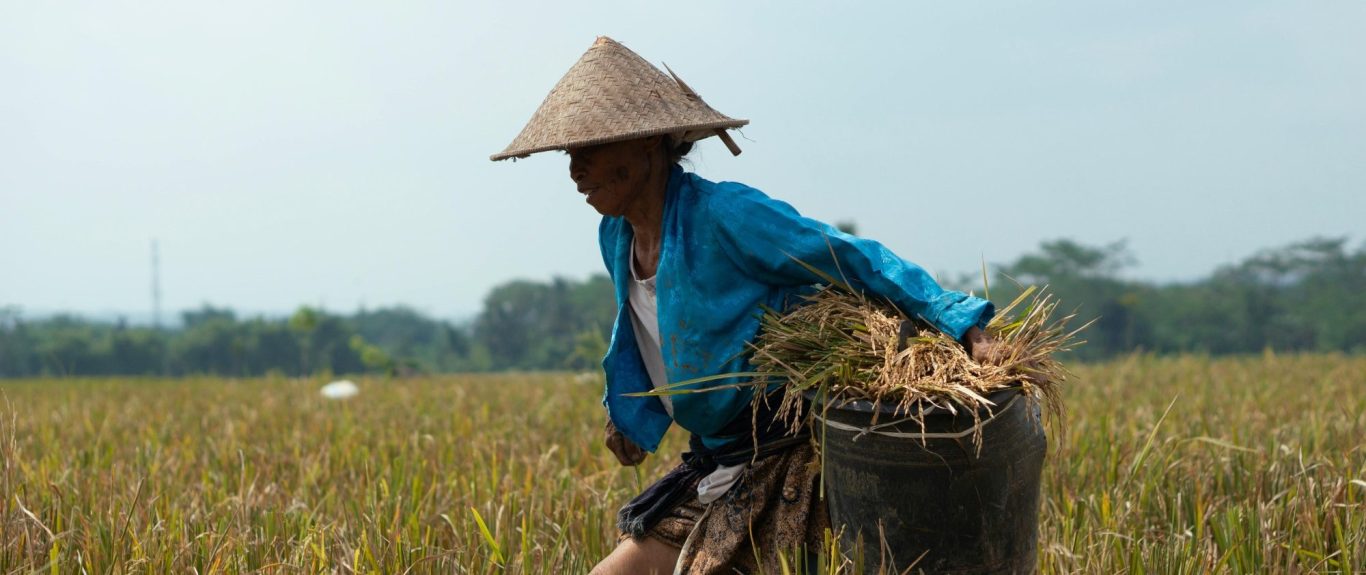Indonesia's Food Estate Program: Between Controversy and Resilience
Indonesia's food estate program has emerged as a controversial national initiative aimed at addressing food security while simultaneously raising significant environmental and social concerns. The project, particularly focused on developing agricultural lands in regions like Papua and Kalimantan, represents a complex intersection of government development strategies, ecological preservation, and indigenous community rights.
The food estate program, which includes plans to establish two million hectares of sugarcane plantations in Papua, has drawn substantial criticism from environmental experts and indigenous rights advocates. A study by the Center of Economic and Law Studies estimates that the project could emit 782.5 million tons of carbon dioxide, potentially doubling Indonesia's global carbon emission contribution.
The Indonesian government, led by President Prabowo Subianto, argues that the food estate is crucial for national food independence. Indonesia's climate envoy, Hasyim Djojohadikusumo, has strongly defended the project, stating it is "non-negotiable" and necessary to reduce food import dependencies. To mitigate environmental concerns, the government has simultaneously announced an ambitious reforestation plan targeting 12.7 million hectares of degraded land.
However, critics view the reforestation initiative as potentially more about public relations than genuine environmental restoration. Environmental experts warn that reforestation cannot simply compensate for the destruction of natural forests, especially given the complex ecosystems in regions like Papua. The project fundamentally challenges the delicate balance of local ecological systems and threatens indigenous communities' traditional ways of life.
The Malind, Makleuw, Yei, and Khimaima indigenous communities have been particularly vocal in their opposition. For these communities, the food estate is not just an economic project but an existential threat to their cultural identity and traditional land management practices. Indigenous women, who are often the primary stewards of natural resources, have questioned the project's impact, asking, "Where will we get our food? Our land is destroyed."
The project also reveals deeper structural issues in Indonesia's development approach. Scholars like James C. Scott critique such initiatives as manifestations of "high modernism" - top-down interventions that prioritize scientific and technical expertise over local knowledge and ecological complexity. The food estate represents a technocratic vision that treats land as a commodity rather than a living, culturally significant ecosystem.
Interestingly, the project has significant political dimensions. Businessman Andi Syamsuddin Arsyad, known as Haji Isam, has emerged as a key player, with close ties to President Prabowo's administration. Haji Isam has invested heavily in the project, importing 2,000 excavators from China at an estimated cost of 258 million US dollars. His influence is further reinforced by having several of his associates appointed to ministerial positions.
The food estate program is not without precedent. Previous attempts, like the Merauke Integrated Food and Energy Estate (MIFEE) under President Susilo Bambang Yudhoyono, have already demonstrated the challenges of such large-scale agricultural interventions.
Experts recommend a paradigm shift. They argue for development approaches that respect indigenous land rights, integrate local ecological knowledge, and prioritize long-term sustainability over short-term economic gains. The concept of "moral ecology" suggests a framework that emphasizes collective well-being and environmental preservation.
As Indonesia confronts its food security challenges, the food estate project serves as a critical case study in balancing national development objectives with environmental sustainability and indigenous rights. Will the government prioritize short-term economic gains or embrace a more holistic, community-centered model of agricultural development? The ultimate success of such initiatives will depend on the government's willingness to adopt more inclusive, participatory approaches that recognize the invaluable knowledge and practices of local communities.
Sources:
https://news.mongabay.com/2024/12/indonesia-reforestation-plan-a-smoke-screen-for-agriculture-project-critics-say/
https://www.thejakartapost.com/opinion/2024/12/18/papua-food-estate-project-risks-turning-into-conflict-hot-spot.html

AGRICULTURE & AGRIBUSINESS
DECEMBER 20, 2024
We need your consent to load the translations
We use a third-party service to translate the website content that may collect data about your activity. Please review the details in the privacy policy and accept the service to view the translations.

